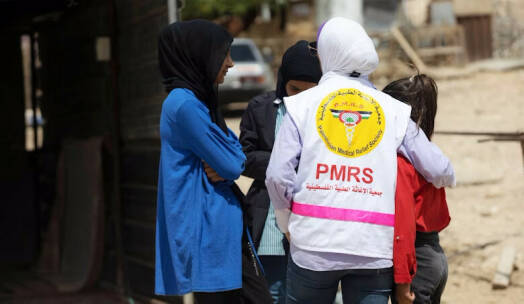
Humanitarian action
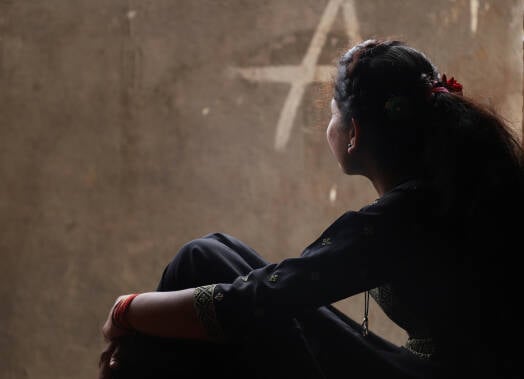
Sexual exploitation
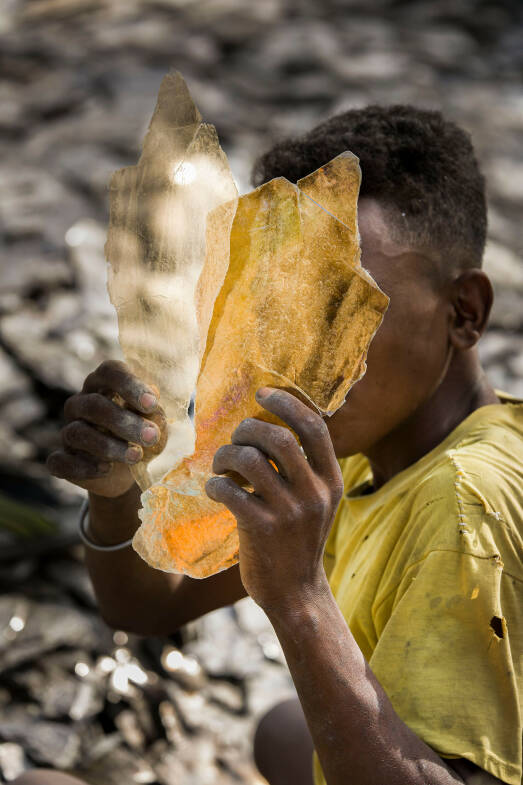
Child labour

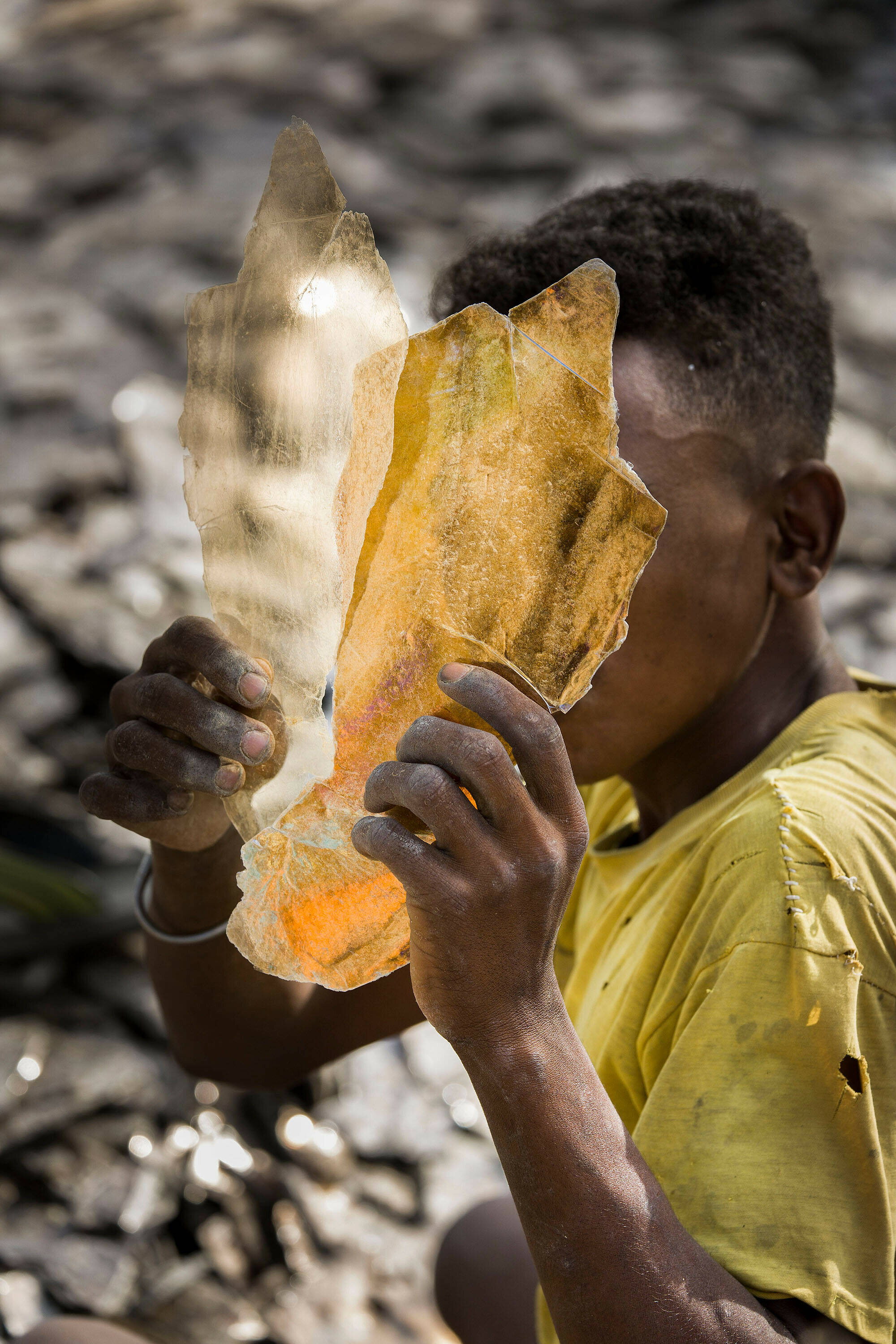
Our response
Terre des Hommes aims to stop child labour by addressing its root causes and the systems that enable it. Our primary focus are children at risk of or currently engaged in child labour. Special attention is given to children with disabilities and those from marginalised groups, ensuring an inclusive approach. In Messi's community, Terre des Hommes has entered into discussions with local authorities and community leaders to make them aware of the danger to children. This not only opened their eyes; they became allies in our fight against child labour. In 2023, Terre des Hommes implemented 14 projects across Bangladesh, India, Kenya, Madagascar and the Philippines to stop exploitative child labour.
The challenge
According to estimates, 160 million children worldwide - roughly 63 million girls and 97 million boys - are being exploited for labour. Out of these, over 79 million are involved in hazardous work, an increasing number of whom are young children aged 5 - 11 years. One-third of all children in child labour are excluded from school which influences their prospects for decent work in the future and their overall life potential as well.
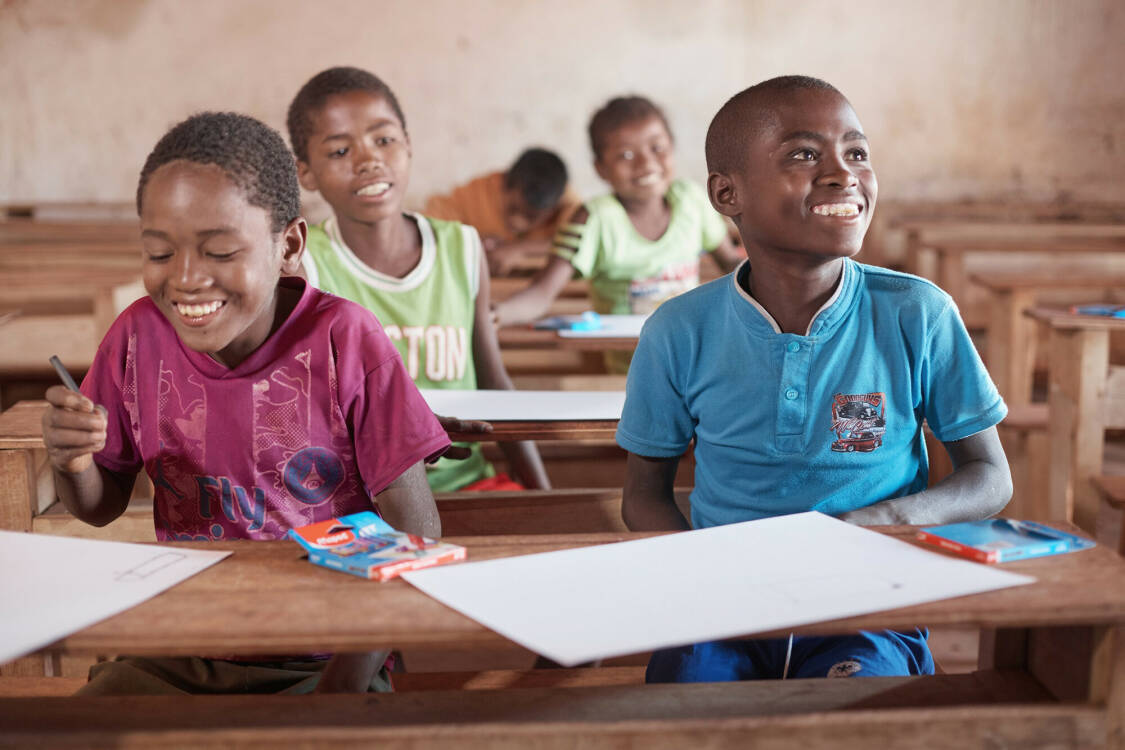
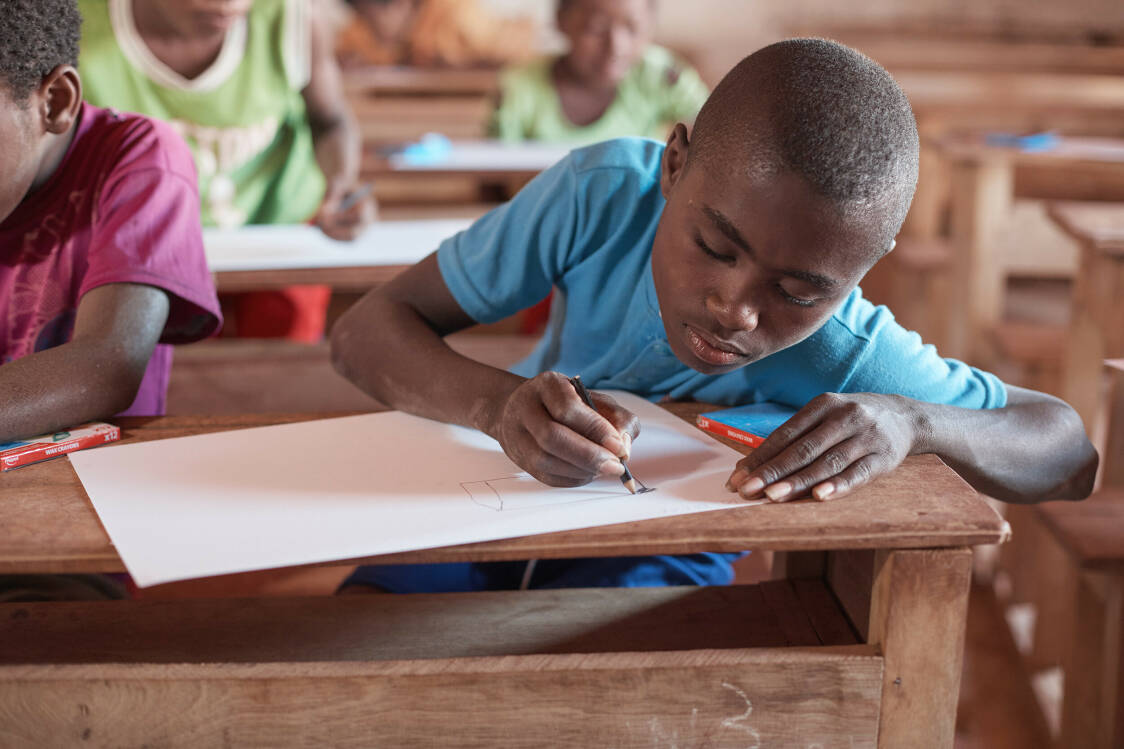
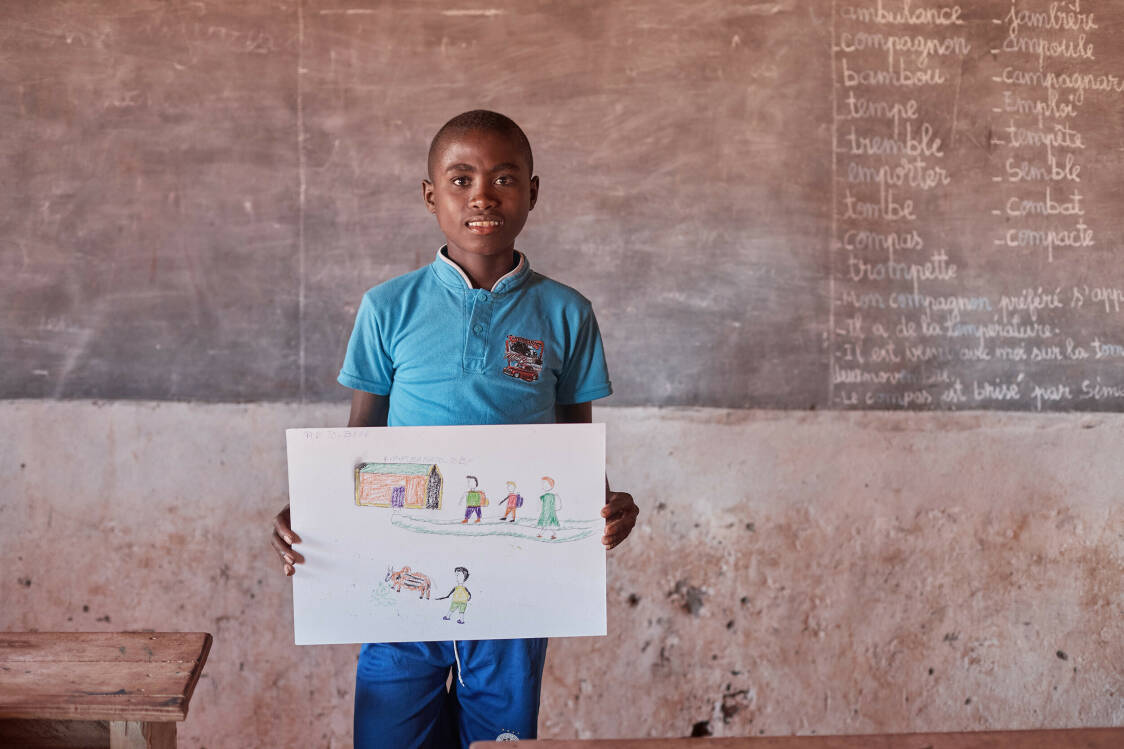
Mica is a lustrous mineral used in many of our everyday products, such as electronics, paint and cosmetics. Its extraction is associated with serious exploitation and child labour. Messi's parents did not earn enough to support their family, which is why Messi, only ten years old, also had to go to work. He worked long hours in the mica mine, often without breakfast. He coughed because of the dust and was often very tired. His health continued to deteriorate, to the point that he was no longer even growing. “It was difficult, but I couldn't do anything else, my parents needed me,” he says.
After years of suffering in the mica mines, Messi's life changed when he was identified by a field staff of FAFAFI, partner of Terre des Hommes.
Through their support, Messi was able to return to school. He received educational materials and lunch every day at school. To ensure that Messi is able to remain in school, his family income and food security had to increase. His parents received training and now grow vegetables and keep chickens. Messi now eats three meals a day. He no longer coughs and his health is improving.
Messi knows exactly what he wants to achieve in his promising future. “I really like to play football. I want to be like the football star Messi. He's so skilled!” he says joyfully. “When I finish my studies, I will open a retail shop so I can provide for my family.”
Messi talks about school with a smile. For a 16-year-old he is rather enthusiastic about going to school. Anyone who knows his background, however, will understand why. Messi lives with his family in a house made of mud in Benato, Madagascar. Their house has two rooms: a kitchen and a bedroom for the whole family of 11 persons. The family lived from farming until drought destroyed their crops. Messi's parents had no choice but to work in a mica mine.
of children
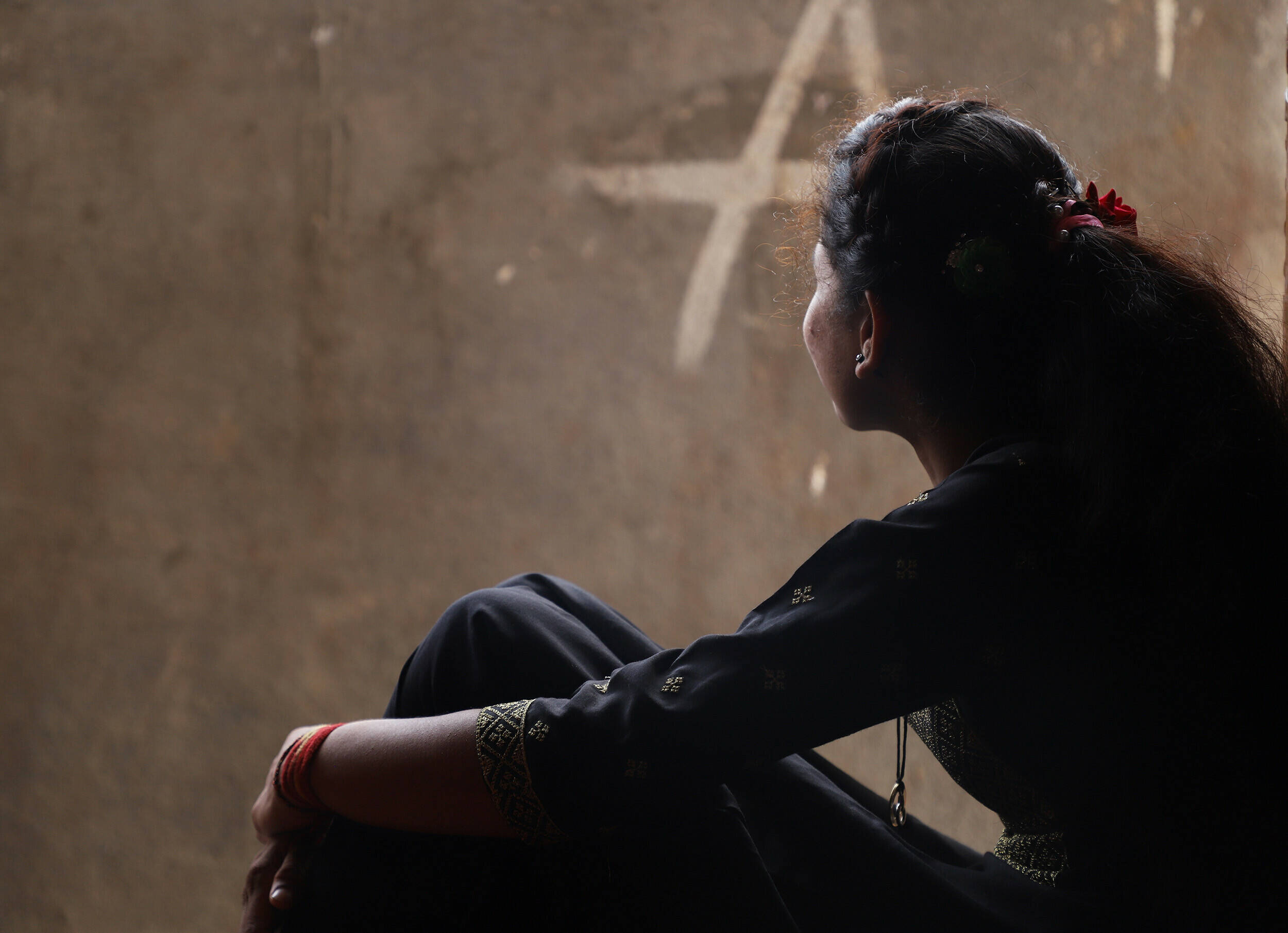
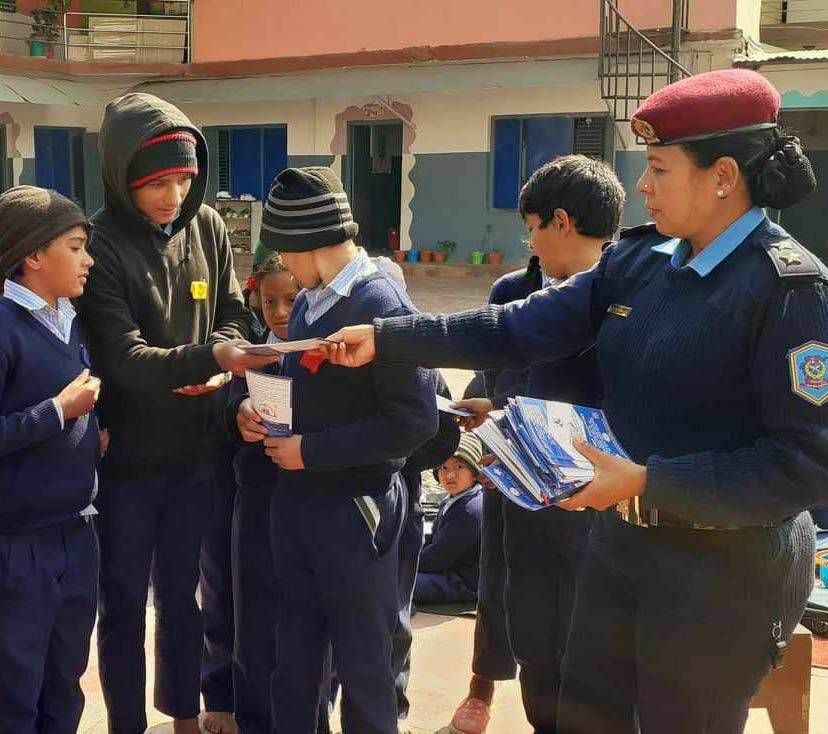
Our response
Terre des Hommes prevents and responds to online and offline sexual exploitation through approaches that address risk and protective factors. These approaches are tailored for children most likely to be left behind. In 2023, Terre des Hommes implemented 35 projects to prevent and stop sexual exploitation of children on- and offline in 13 countries, including at EU, MENA and pan-Africa levels.
The challenge
Globally, one in five girls and one in thirteen boys have been victims of sexual exploitation or abuse before reaching the age of eighteen. In the face of rapid technological advances and digitalisation, new generations of children are growing up in an online environment where they face new risks. A global survey found that 54% of youth reported having experienced online sexual harms, such as being asked something sexually explicit or sent sexually explicit content, when they were under 18.
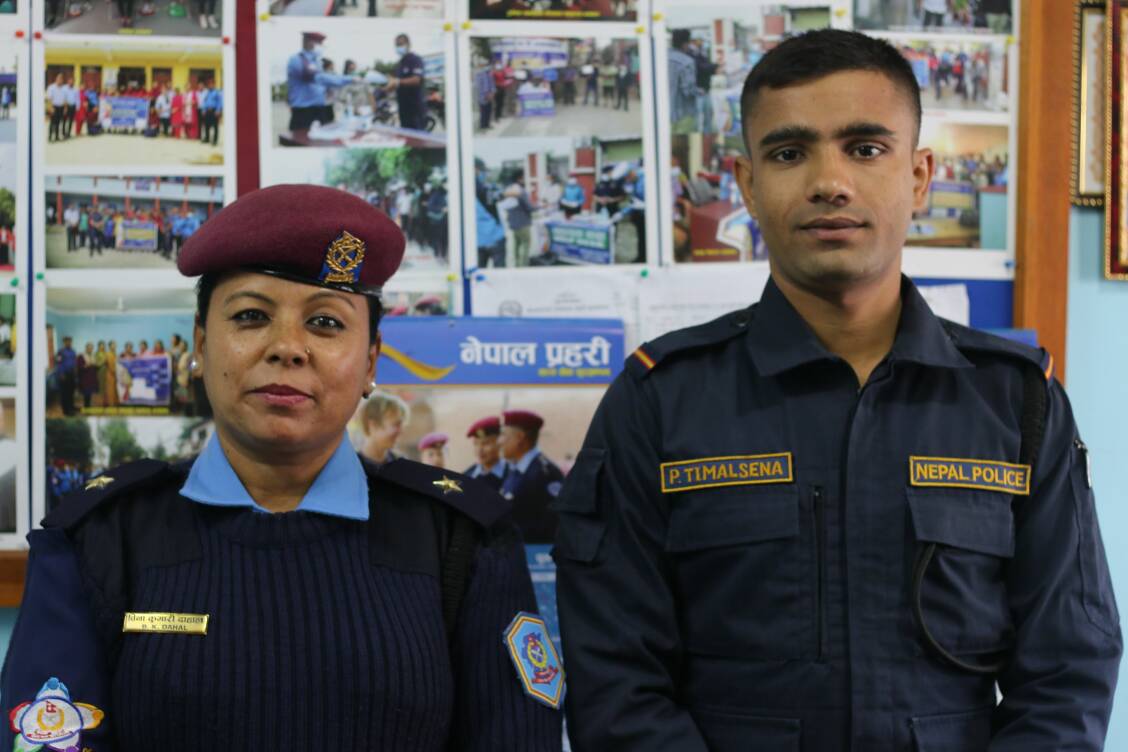
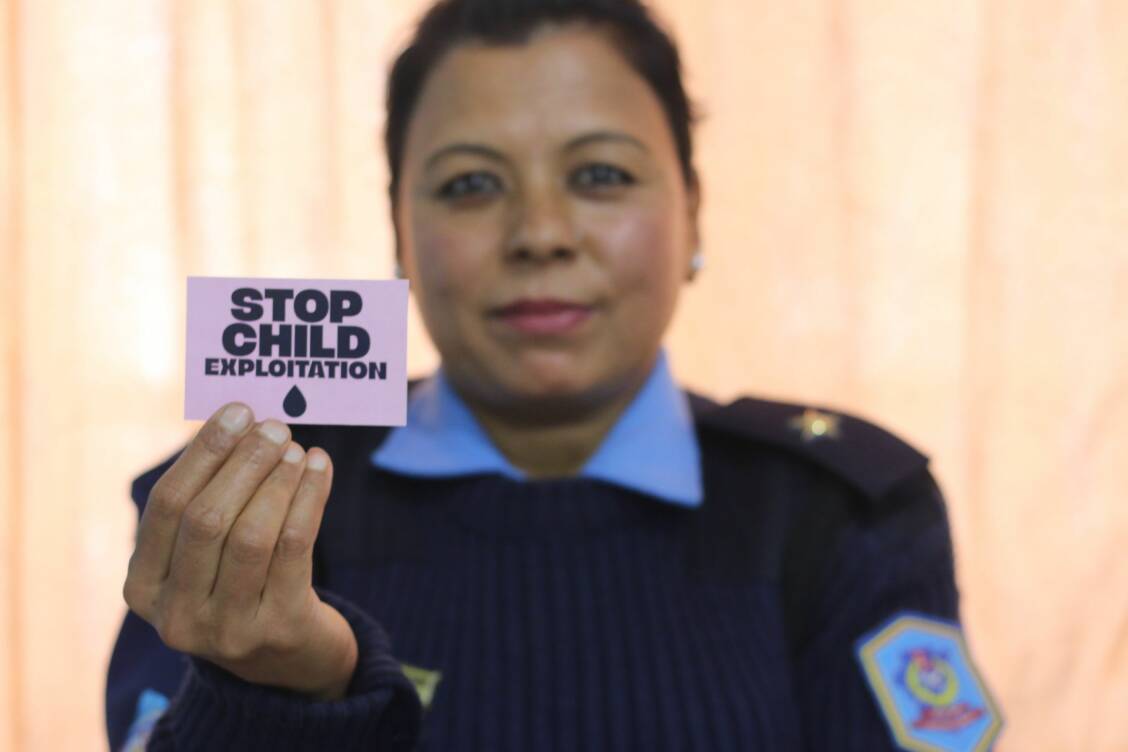
“I learnt how concerning the issue of OCSE was. It was then that I started to observe this in the community. Children as young as 3 years old were using mobile phones without being monitored, while reports of sharing of online sexual abuse material were present”, she said.
Thus, Bina started on a new mission - to end OCSE in her ward. Bina conducted 45-minute sensitisation sessions on OCSE in both private and public schools in close coordination with SCROL. These sessions focused on spreading awareness of online dangers and key safe online practices to follow.
So far, Bina has covered 25 of the 29 schools in her ward reaching out to children from the age group of 12-19 years. She has begun to see changes in the behaviour of the children after her sessions. “Children have started opening up to me about their online activity. I have also seen that many children have begun using the local helpline to report cases'', she said.
Bina Dahal has been a police officer in the Bagmati province of Nepal for many years. She first heard about online sexual exploitation of children through the Safety for Children and their Rights OnLine (SCROL) project - which is made possible by the Dutch Postcode Lottery. “I was not aware that so many children are being abused online. I knew nothing about online risks.”
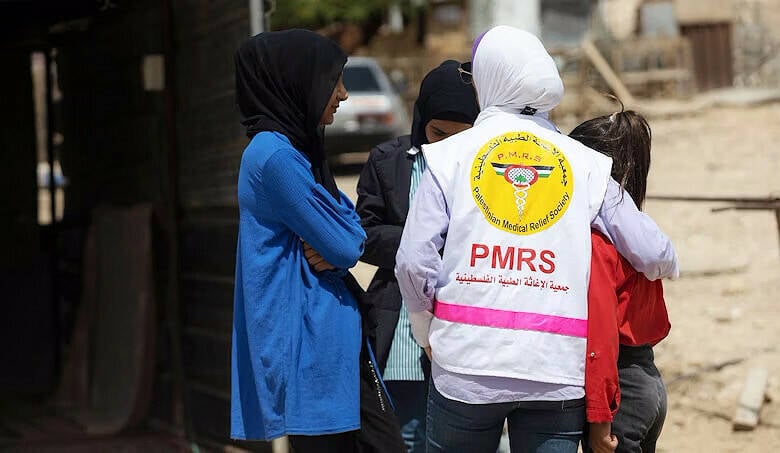
Our response
Terre des Hommes’ approach in humanitarian crises focuses on different aspects of intervention: we aim to protect children from exploitation during crises by directly addressing urgent risk factors and at the same time, we prioritise the physical and emotional well-being of children, families, and communities. By providing such protection assistance, we aim to mitigate exploitation risks. In 2023, Terre des Hommes prevented exploitation in emergency and fragile contexts through nine projects.
The challenge
Every year, events such as armed conflict, drought, flooding and earthquakes trigger humanitarian crises in different parts of the world, exposing thousands of children to all forms of exploitation. According to data from 2022, 362 million people worldwide need humanitarian assistance, almost half of which are children. Climate change continues to severely impact children. More than one billion children (half of the world's children) live in areas with extremely high risk for climate-related impacts.
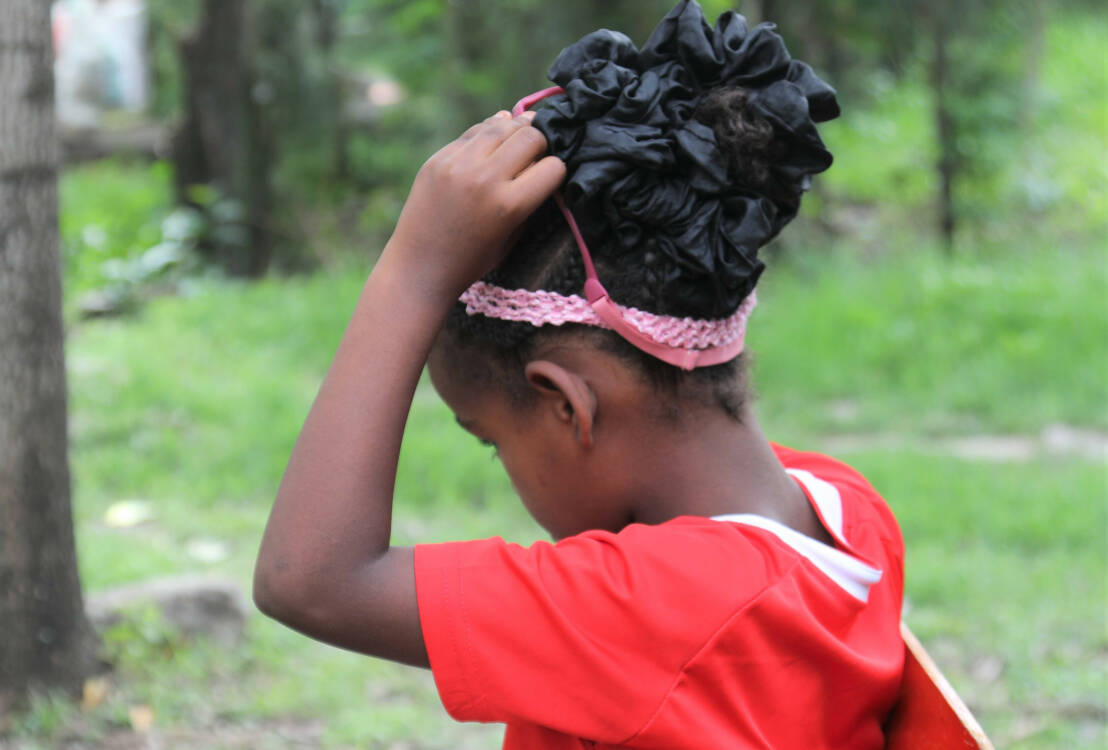
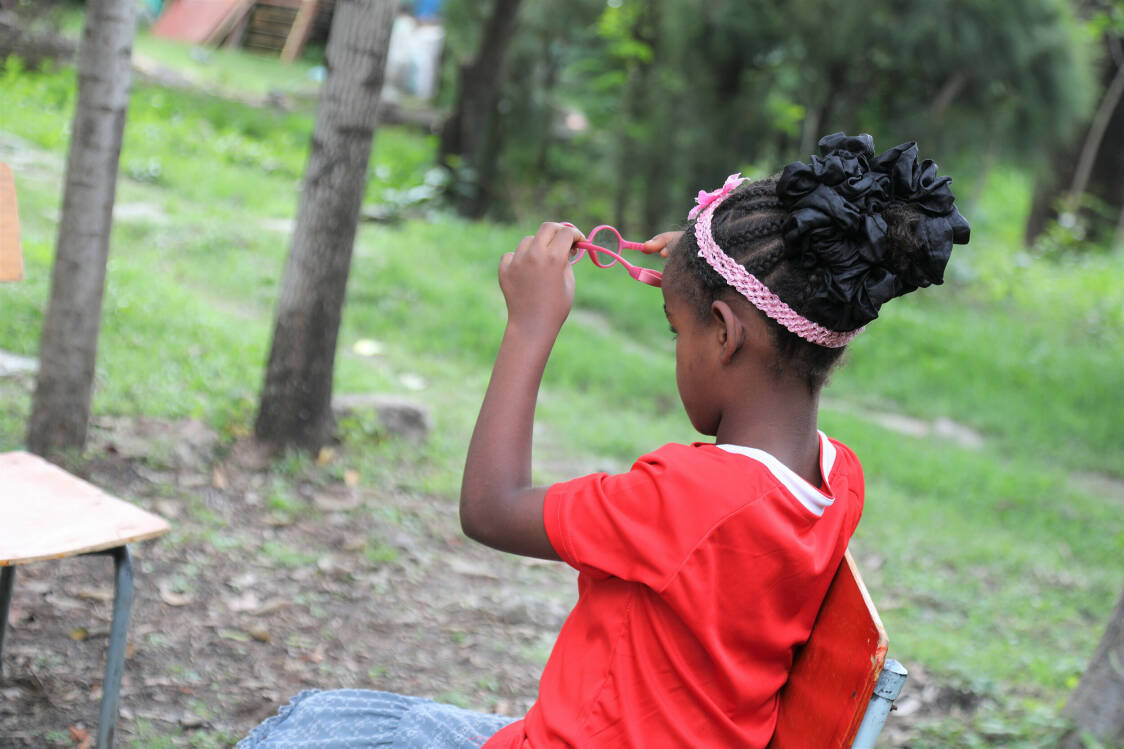
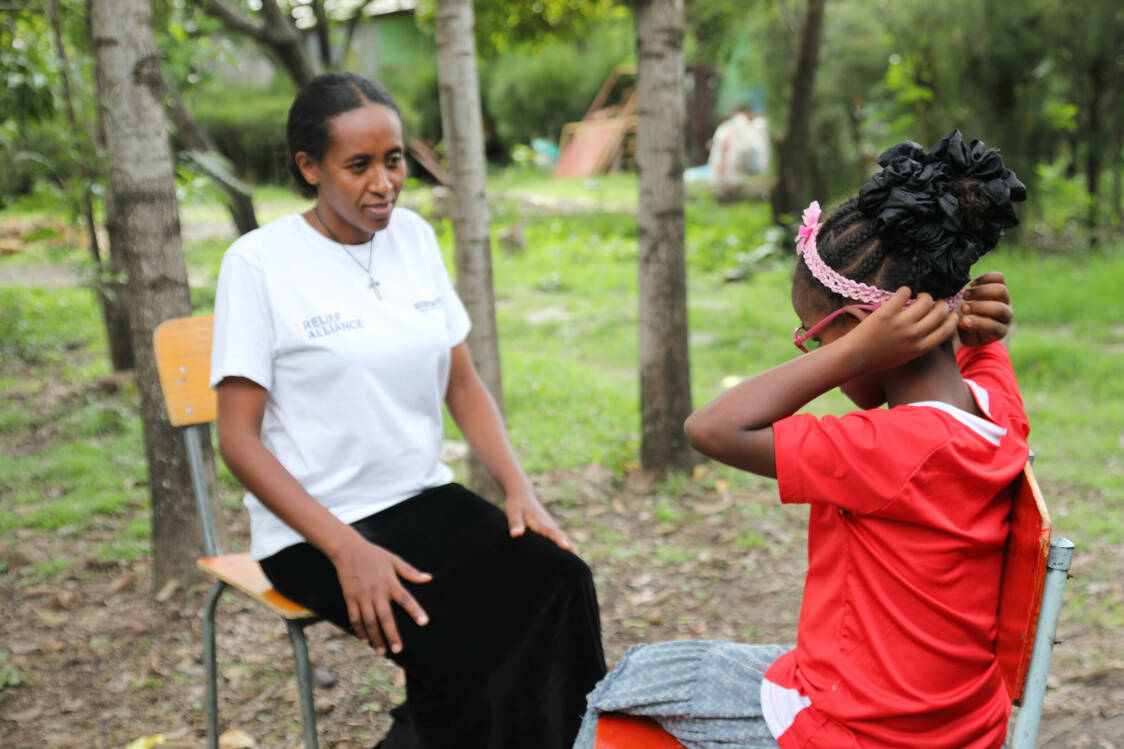
Sadly, Eldana was caught in the crossfire, and was in desperate need of immediate medical treatment. She could not get access to any medical attention in time and ended up losing one of her eyes, causing her severe pain and anguish. The family returned home after the conflict, only to find their property stolen and healthcare facilities destroyed. Despite efforts to raise funds for Eldana's treatment, her father absconded with the money collected.
Terre des Hommes supported Eldana to get medical treatment. Additionally, regular home-based psychosocial support activities improved the family’s well-being and increased Eldana’s resilience. Eldana started to regain her confidence, went back to school and slowly developed a positive mindset, learning to live with her disability. Eldana received glasses and a prosthetic eye to replace the injured one, helping her regain her eyesight.
Eldana is now back in school in the third grade after nine months of absence. She has developed a positive mentality and is empowered to be more resilient.
Eldana, nine years old, lives with her mother and two younger sisters in a one-room rental house in the Amhara Region of Ethiopia. During the invasion of the Tigray People's Liberation Front in April 2021, Eldana and her family ran away from the conflict area for safety.
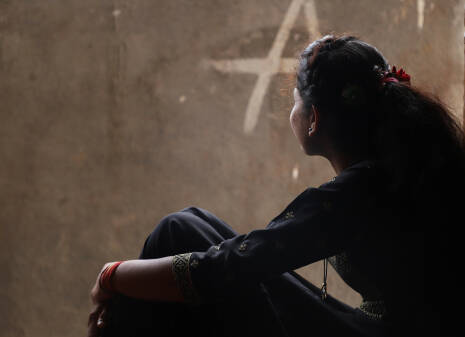
Sexual exploitation
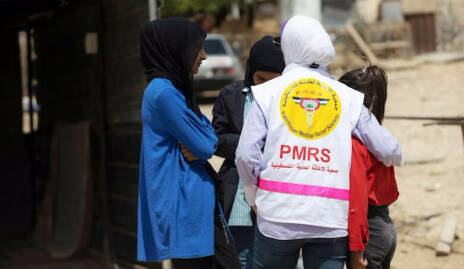
Humanitarian action
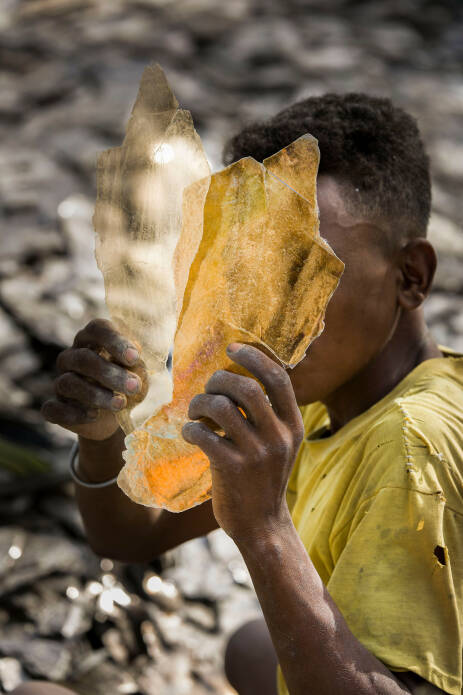
Child labour


Our response
Terre des Hommes aims to stop child labour by addressing its root causes and the systems that enable it. Our primary focus are children at risk of or currently engaged in child labour. Special attention is given to children with disabilities and those from marginalised groups, ensuring an inclusive approach. In Messi's community, Terre des Hommes has entered into discussions with local authorities and community leaders to make them aware of the danger to children. This not only opened their eyes; they became allies in our fight against child labour. In 2023, Terre des Hommes implemented 14 projects across Bangladesh, India, Kenya, Madagascar and the Philippines to stop exploitative child labour.
Mica is a lustrous mineral used in many of our everyday products, such as electronics, paint and cosmetics. Its extraction is associated with serious exploitation and child labour. Messi's parents did not earn enough to support their family, which is why Messi, only ten years old, also had to go to work. He worked long hours in the mica mine, often without breakfast. He coughed because of the dust and was often very tired. His health continued to deteriorate, to the point that he was no longer even growing. “It was difficult, but I couldn't do anything else, my parents needed me,” he says.
After years of suffering in the mica mines, Messi's life changed when he was identified by a field staff of FAFAFI, partner of Terre des Hommes.
The challenge
According to estimates, 160 million children worldwide - roughly 63 million girls and 97 million boys - are being exploited for labour. Out of these, over 79 million are involved in hazardous work, an increasing number of whom are young children aged 5 - 11 years. One-third of all children in child labour are excluded from school which influences their prospects for decent work in the future and their overall life potential as well.
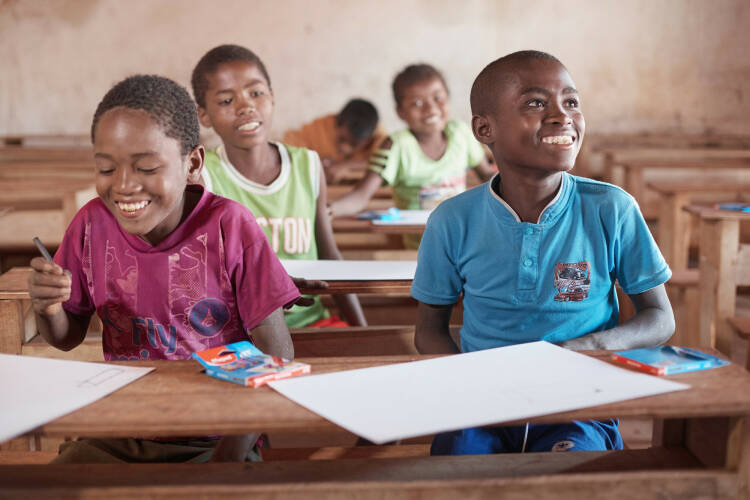
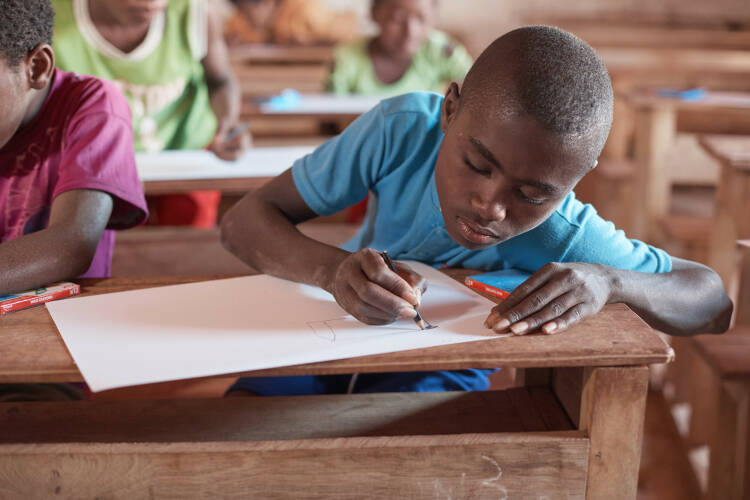
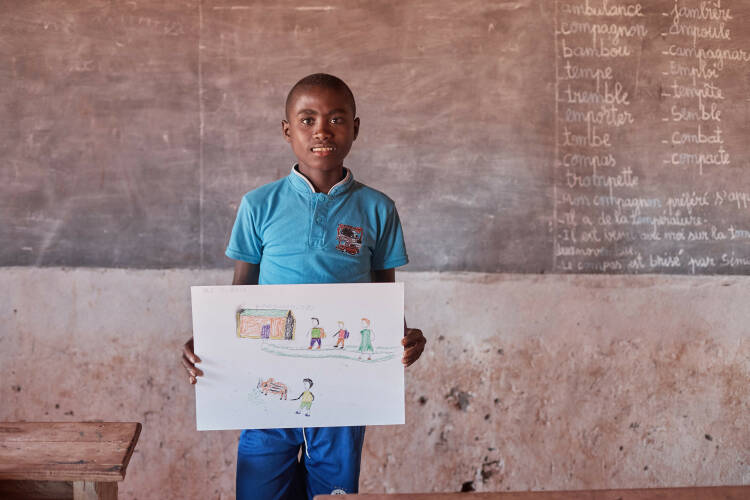
Through their support, Messi was able to return to school. He received educational materials and lunch every day at school. To ensure that Messi is able to remain in school, his family income and food security had to increase. His parents received training and now grow vegetables and keep chickens. Messi now eats three meals a day. He no longer coughs and his health is improving.
Messi knows exactly what he wants to achieve in his promising future. “I really like to play football. I want to be like the football star Messi. He's so skilled!” he says joyfully. “When I finish my studies, I will open a retail shop so I can provide for my family.”
Messi talks about school with a smile. For a 16-year-old he is rather enthusiastic about going to school. Anyone who knows his background, however, will understand why. Messi lives with his family in a house made of mud in Benato, Madagascar. Their house has two rooms: a kitchen and a bedroom for the whole family of 11 persons. The family lived from farming until drought destroyed their crops. Messi's parents had no choice but to work in a mica mine.
of children

Our response
Terre des Hommes prevents and responds to online and offline sexual exploitation through approaches that address risk and protective factors. These approaches are tailored for children most likely to be left behind. In 2023, Terre des Hommes implemented 35 projects to prevent and stop sexual exploitation of children on- and offline in 13 countries, including at EU, MENA and pan-Africa levels.
The challenge
Globally, one in five girls and one in thirteen boys have been victims of sexual exploitation or abuse before reaching the age of eighteen. In the face of rapid technological advances and digitalisation, new generations of children are growing up in an online environment where they face new risks. A global survey found that 54% of youth reported having experienced online sexual harms, such as being asked something sexually explicit or sent sexually explicit content, when they were under 18.
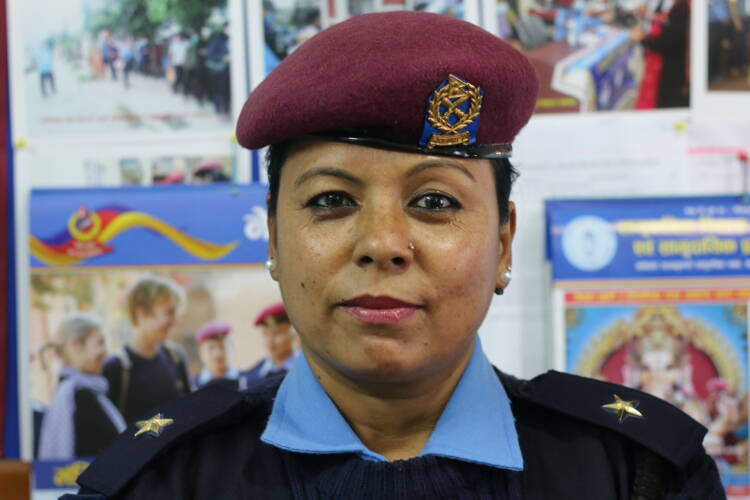
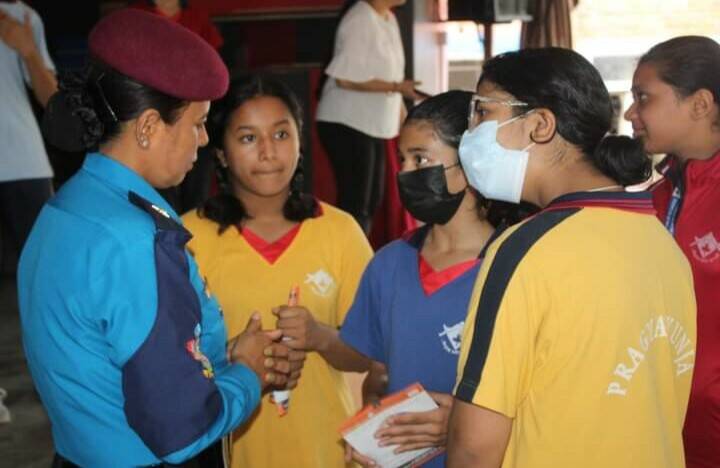
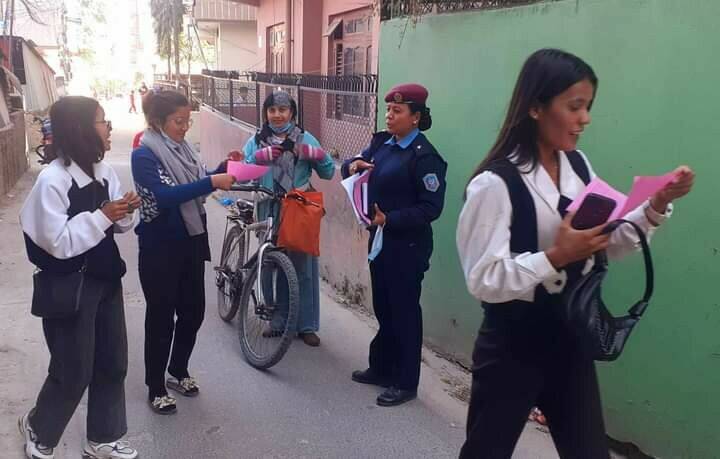
“I learnt how concerning the issue of OCSE was. It was then that I started to observe this in the community. Children as young as 3 years old were using mobile phones without being monitored, while reports of sharing of online sexual abuse material were present”, she said.
Thus, Bina started on a new mission - to end OCSE in her ward. Bina conducted 45-minute sensitisation sessions on OCSE in both private and public schools in close coordination with SCROL. These sessions focused on spreading awareness of online dangers and key safe online practices to follow.
So far, Bina has covered 25 of the 29 schools in her ward reaching out to children from the age group of 12-19 years. She has begun to see changes in the behaviour of the children after her sessions. “Children have started opening up to me about their online activity. I have also seen that many children have begun using the local helpline to report cases'', she said.
Bina Dahal has been a police officer in the Bagmati province of Nepal for many years. She first heard about online sexual exploitation of children through the Safety for Children and their Rights OnLine (SCROL) project - which is made possible by the Dutch Postcode Lottery. “I was not aware that so many children are being abused online. I knew nothing about online risks.”

Our response
Terre des Hommes’ approach in humanitarian crises focuses on different aspects of intervention: we aim to protect children from exploitation during crises by directly addressing urgent risk factors and at the same time, we prioritise the physical and emotional well-being of children, families, and communities. By providing such protection assistance, we aim to mitigate exploitation risks. In 2023, Terre des Hommes prevented exploitation in emergency and fragile contexts through nine projects.
The challenge
Every year, events such as armed conflict, drought, flooding and earthquakes trigger humanitarian crises in different parts of the world, exposing thousands of children to all forms of exploitation. According to data from 2022, 362 million people worldwide need humanitarian assistance, almost half of which are children. Climate change continues to severely impact children. More than one billion children (half of the world's children) live in areas with extremely high risk for climate-related impacts.
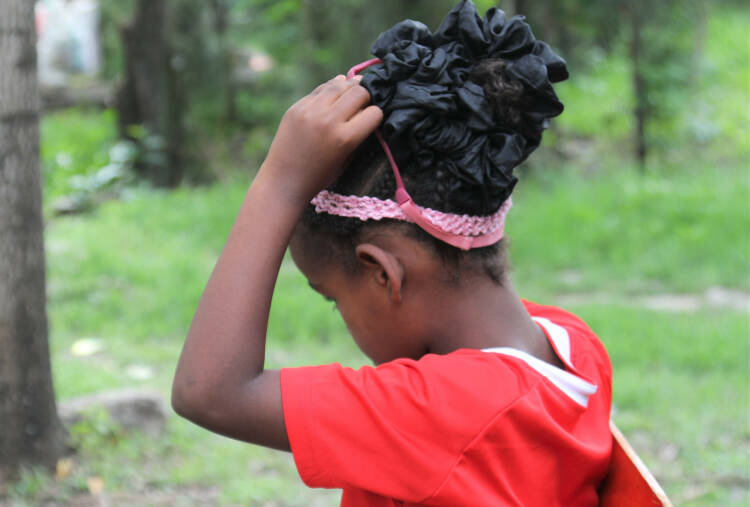
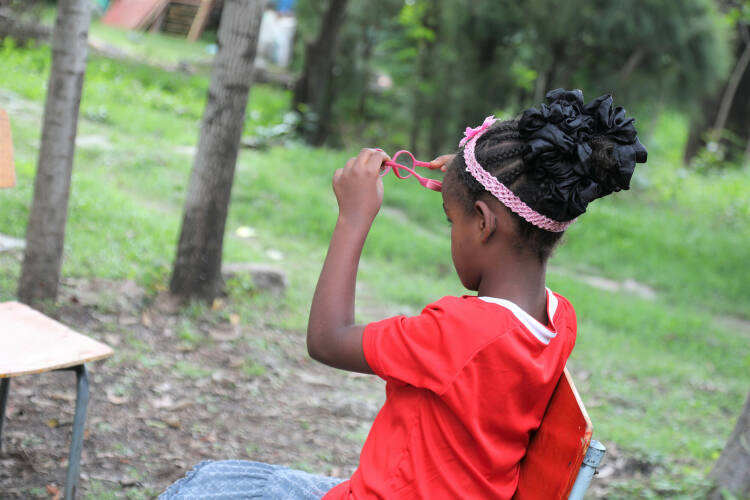
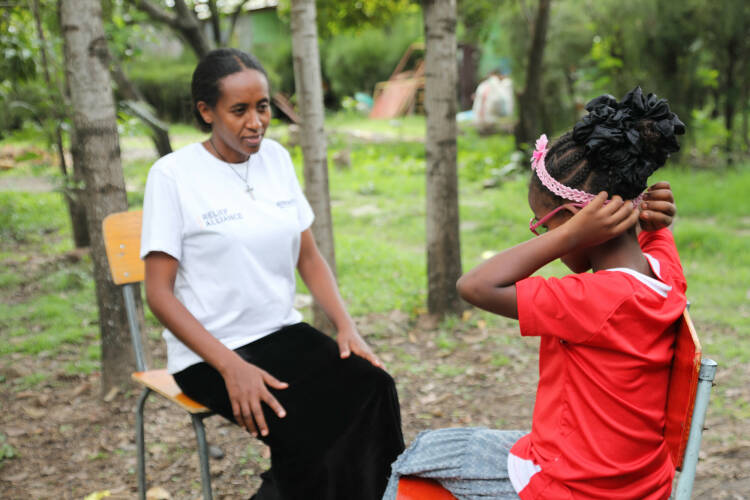
Sadly, Eldana was caught in the crossfire, and was in desperate need of immediate medical treatment. She could not get access to any medical attention in time and ended up losing one of her eyes, causing her severe pain and anguish. The family returned home after the conflict, only to find their property stolen and healthcare facilities destroyed. Despite efforts to raise funds for Eldana's treatment, her father absconded with the money collected.
Terre des Hommes supported Eldana to get medical treatment. Additionally, regular home-based psychosocial support activities improved the family’s well-being and increased Eldana’s resilience. Eldana started to regain her confidence, went back to school and slowly developed a positive mindset, learning to live with her disability. Eldana received glasses and a prosthetic eye to replace the injured one, helping her regain her eyesight.
Eldana is now back in school in the third grade after nine months of absence. She has developed a positive mentality and is empowered to be more resilient.
Eldana, nine years old, lives with her mother and two younger sisters in a one-room rental house in the Amhara Region of Ethiopia. During the invasion of the Tigray People's Liberation Front in April 2021, Eldana and her family ran away from the conflict area for safety.